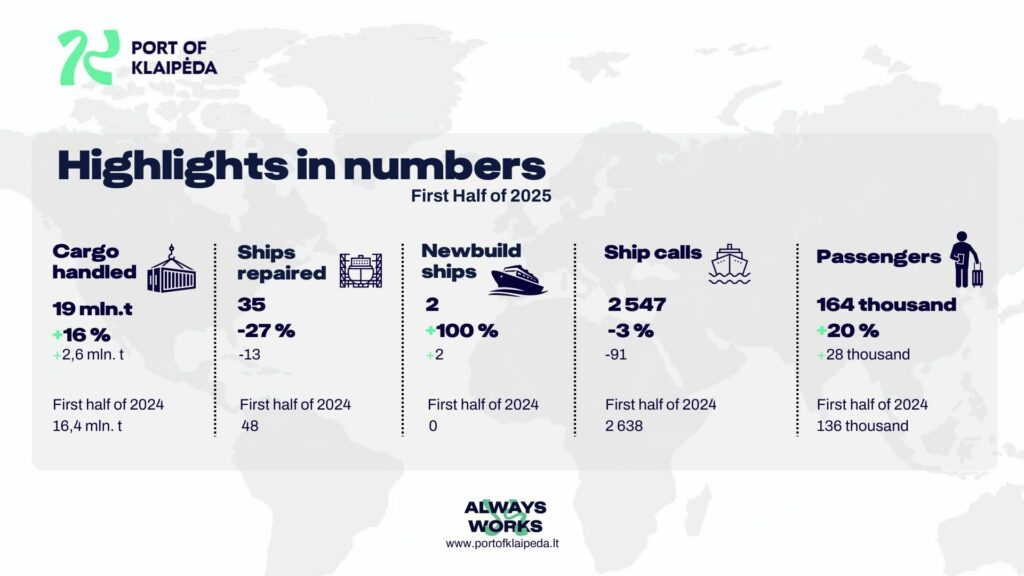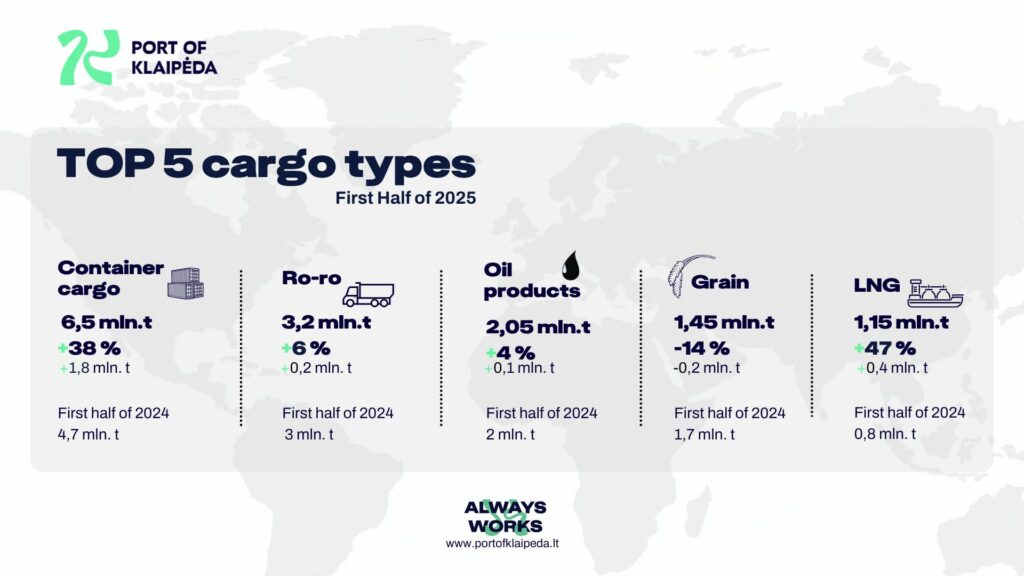
Klaipėda Port has emerged as the fastest-growing port among the Baltic States in the first half of 2025, handling nearly 19 million tons of cargo, representing a 16% increase compared to the same period in 2024.
Algis Latakas, CEO of the Klaipėda State Seaport Authority, commented that with a 16% increase in cargo volumes, they’re on track to exceed 1 million TEUs by year’s end.

The growth in overall cargo was largely driven by a 38% surge in containerized cargo, reaching 6.5 million tons. Nearly 700,000 TEUs were processed between January and June, with a well-balanced trade profile: 40% exports and 41% imports.
Transshipment activity also increased, now accounting for nearly 20% of total container traffic.
Other standout segments included mineral and construction materials, which rose by 48% to 1 million tons, reflecting active infrastructure development projects across Lithuania. LNG volumes also showed sharp growth, up 47% to 1.1 million tons, recovering from last year’s drop when the FSRU Independence was temporarily offline for maintenance in May.
Ro-ro cargo increased by 6% to 3.2 million tons, and oil products rose 4%, slightly surpassing 2 million tons.

Meanwhile, passenger traffic also saw a strong recovery, with 164,000 passengers using the port a 20% increase year-on-year. Cruise passenger numbers jumped by 66%, indicating renewed interest in Klaipėda as a tourism destination.
On the industrial front, two ships were built and 35 underwent repairs at the port’s shipbuilding and repair facilities during the first half of the year.
However, not all segments posted gains. Scrap metal volumes fell by 25%, grain shipments declined by 14% to 1.4 million tons, and timber cargo dropped by 11% to 354,000 tons. Fertilizer shipments also edged down by 4% to 783,000 tons.
Despite these declines, Klaipėda Port significantly strengthened its regional position.
Total cargo handled by all ports in the Baltic Sea region reached 46.4 million tons, up 5%, with Klaipėda accounting for the largest share. The port’s market share increased from 37.1% to 40.8%, cementing its leadership among Baltic State ports.
Klaipėda also maintained a broad network of trade connections, engaging with 56 countries in the first half of 2025. Its largest trading partners included Germany, Sweden, Poland, the United States, and the Netherlands.





